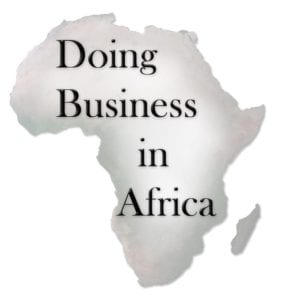The risks attached to operating a business vary, but can rise dramatically when a company operates on an international level across continents, forcing it to deal with local regulations in a number of countries.
The uncertainties of local economies and the logistics of moving materials and people across difficult terrain can exacerbate these challenges, keeping managers awake at night, especially if operations are concentrated in Africa. Staffing business operations with expatriates (expats) who have to liaise with local employees creates additional stresses and risks. Although Africa is open for investments, there is no doubt that it still poses significant challenges for business. Companies, specialising in logistics, have to meet demanding deadlines and the service delivery expectations of a wide range of customers, says Ethel Nyembe, Head of Small Enterprise at Standard Bank. The only solution, she says, is to ensure that effective partnerships are established to mitigate these risks. “One partnership that is increasingly common on the continent comprises of agreements between companies like Bolloré, which copes with the macro-issues of doing business across multiple geographies, and those that deal with the specialised, but equally demanding task of recruiting and relocating expatriate staff for these organisations. The scale of the challenge may seem smaller, but it is vital if the business is to succeed,” says Nyembe, when discussing a recent episode of The Growth Engines. “To deliver, you have to understand what routes are available and when they can be used, as well as points of entry into countries. Management of points of transition is also required if deliveries are to take place. This can involve colleagues collaborating simultaneously across three or four countries,” says Meryl Bengtsson, Regional Director: Human Resources at Bolloré Africa Logistics.“You have to be very flexible and adaptable, a company that understands the diversity of thought, values, business practices and cultures existing in Africa. You can’t be arrogant. You have to adapt your style to your location. ”
Assimilation means reducing risk through building relationships and understanding. To achieve this, resources need to be used optimally to ensure that qualified expatriates have the skills to cope when working out fixed-term contracts in foreign climes. “Peace of mind and integration are the ultimate aims – both are necessary if people are to adapt and be successful in their new homes,” says Connie Peter, a director of Expats On The Globe. “Immigration into South Africa is increasing as a result of the number of multi-national organisations that have offices here and operate across the continent. They need specialised staff to assist on projects. Expats are required in several African markets; local people cannot often supply unique skills for many of the infrastructure projects underway on the continent. “Education about the socio-economic environment in South Africa means also preparing expats culturally. Immigration without integration simply cannot succeed.” “The message is clear. Moving a business into Africa means a myriad of challenges at a macro level. Forgetting that the vital link in the value delivery chain is happy people, means running the risk of making very expensive mistakes,” says Ms Nyembe.






